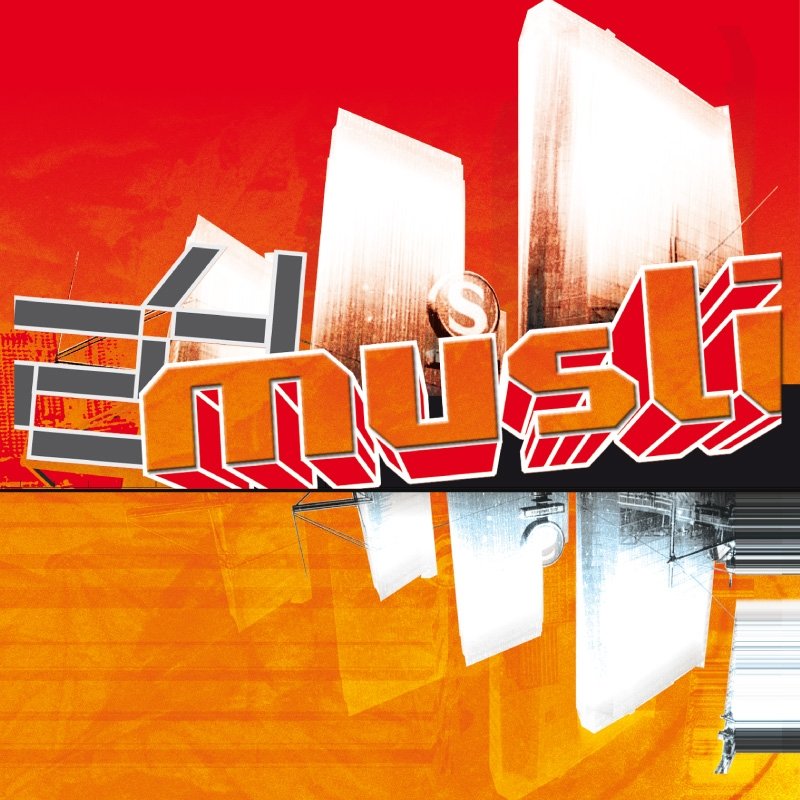Added to cart


Musli 24
12 | 2003
A cocktail presenting 26 performers at 24 and younger. From ambient to drum'n'bass.
MUSLI 24 is like a kind of a folded bike. Such a cocktail of everything. I am trying to find some common feature of the entire release and I have a problem, although it is very pleasant to listen to. It's basically a report on the musical trends and preferences of young people up to 24 years of age. We’ve got here industrial, hiphop, ambient, drum'n bass, dub, chillout, jazz. Only classic rock is missing. In my opinion, the two parts LIGHT and DARK do not differ significantly, although the latter is calmer. However, an interesting idea was to limit the age of performers. Young people do not seem to be burdened with this heavy baggage of musical legacy. Such intuitive playing is very valuable. This is what one is supposed to play with. Although there are songs here made with great care in arrangement, such as PENAR, ELEKTROBAL, but for it to sound fully (beats, bass and vocals) you would need a good producer and a good studio (but anyways ... I'm being picky!). Everything is done on good stylistically diverse models (I even had nice associations with the jazz FLANGER here and there). The label of Ł. Pawlak generally specializes in broadly understood electronic music. I am also glad that I have not noticed the old sequential manners in the style of KLAUS SCHULZE or J.M.JARR, pushed excessively, for example in the Polish community of EL-MUSICIANS. I wonder if my theories that everything can be sold, even niche productions such as MUSLI 24, would work, because everything depends on intelligent promotion.
One should also mention a very important thing here. Listening to all the songs, I finally have the impression that they were PLAYED and not edited as many artists do. Of course, any method is good as long as it brings positive results. I am thinking of all the samples from the company releases (eg FUTURE MUSIC). As you know, you have to be skilful because the effect of such naive treatment of music is that they all sound the same. Almost all of the makers of MUSLI 24 primarily use the computer as their primary tool. And this is associated with the use of often cheap music programs offering sounds, loops, etc. It hardly happens that it is treated as just the starting material for achieving something new. It's the same with modern synthesizers offering ready-made patterns and arrangements just to sell the instrument. Although sometimes it happens that such a pattern will inspire and on its basis the rest is organized, but for this you need talent. The same applies to samples cut from an already existing track. I really like such treatments, provided that it will be made into something NEW and not a crude copy. This way has no tradition in Poland. The authors rarely agree to lend samples, which I will never understand (they cannot distance themselves from the fact of sampling). I have a lot of experience in this regard. Pawlak's publishing house has included some interesting recordings with samples, edited very intelligently and probably so neatly that the original authors would not get angry. This is important because the computer is a "DIGIT" and sometimes its digital nature can be unpleasant to the ear. No synthesizer will generate the acoustic capabilities of a violin, trumpet or saxophone. That is why recordings mixing various technologies sound so interesting, e.g. analog and digital synthesizers + a scratchy vinyl sample and, finally, a live instrument, e.g. a human voice. It sounds like nothing. Of course, I haven't discovered any significant truths here. This has been done for many years. So I wonder what else you can think of in this regard.
In the 1980s, I received low-circulation vinyls with just such music. It was an excellent period for experimental music. You were really someone among your buddies, having such albums as TEST DEPARTMENT, ZEV, THROBBING GRISTLE, CONNY SCHNITZLER, DOME or SPK. Loops, crackles, noises, sounds from the street, strange and mysterious voices against the background of simple and uninspired music from industrial rock are the features of this decade. Even then, the term "electronic music" as a genre was starting to blur. It was not exposed as much as the classics of this genre, but it turned out that it was also accepted by orthodox fans of KLAUS SCHULZE or TANGERINE DREAM (maybe because their first productions were very avant-garde).
Although I find MUSLI 24 a very interesting album, I'm afraid that it signals the fact that we are slowly wading into a dead end, we are looping. Even now the so-called laptop scene adds nothing to the development of music. It seems to us that being generated directly from the computer is original in itself. Unfortunately, the music itself has not changed a bit in formal terms. Already in the 1970s, such things were done only on tape (unfortunately ten times longer!). Maybe we need to start verifying the direction of inspiration, because technology will not tell us anything anymore. A similar problem is perceived in contemporary music, so close to the circles in the MUSLI 24 circle. There is, however, a kind of renaissance of traditional musical forms. Perhaps tonality and harmony will become the main elements of inspiration again. We'll see!
Konrad Kucz 2003
2 x CDr format
Buy
cd1
cd2